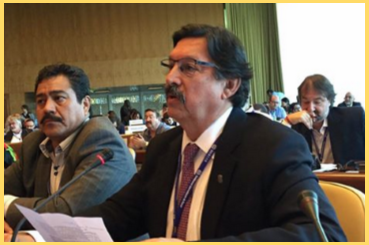 The Mexican Senate has unanimously approved an initiative that amends Articles 107 and 123 of the Mexican Constitution, leading the way for what could be a serious advance for workers in the country.
The Mexican Senate has unanimously approved an initiative that amends Articles 107 and 123 of the Mexican Constitution, leading the way for what could be a serious advance for workers in the country.
This would impact the auto companies doing business there under the disputed, job-stealing NAFTA treaty that is a contentious part of the U.S. presidential election where the likely winner Hillary Clinton saw her adulterer husband – ex-president William Clinton – push the trade deal through Congress.
The proposed reforms would eliminate the so-called tripartite conciliation and arbitration boards (Juntas de Conciliación y Arbitraje) and transfer their legal functions to the judicial branch. This means that labor issues, perhaps, are no longer directly in the hands of politicians, if the courts are not corrupt. Ousted would be the President of the Republic, complicit Governors and employer-dominated unions (charro unions).
The call to dissolve the conciliation and arbitration boards and establish independent labor tribunals has been a fundamental demand of Mexican democratic unions and the international trade union movement for decades, of course. This is central to IndustriALL and ITUC’s complaint no. 2694 before the Freedom of Association Committee of the International Labor Organization (ILO).
The reform’s requirements for secret, personal and free ballot votes on collective bargaining agreements and majority representation, address the “pervasive problem of employer-dominated protection contracts, which are negotiated without the participation or even the knowledge of workers,” per IndustriALL.
The Senate reform also modifies language regarding the strike authorizations in Art.123.A.XVIII, which after heated debate now reads “when a collective bargaining agreement is sought, the representation of the workers must be demonstrated.”
Under Mexican law the strike demand is the legal prerequisite for any collective bargaining to take place. The new language was bitterly opposed by the right-wing parties and the chamber of employers. The proposed reforms still face fierce opposition from both business interests and employer-dominated unions.
High Hurdles
- The Constitutional reforms must still be approved by a two-thirds vote of the Chamber of Deputies and ratified by a majority of the states, which ought to happen between December 2016 and February 2017.
- Changes to the Federal Labor Law to implement the Constitutional reforms and further address the problem of protection contracts and procedures for union representation elections were submitted by the President in April and must be enacted separately.
- The Senate has not yet voted on ILO Convention 98 on collective bargaining, which was forwarded by the President last year with a request for ratification.
Napoleon Gomez Urrutia, leader of IndustriALL affiliate Los Mineros, said at the ILO Conference in June 2016, the positive amendments of this latest reform, should not keep the Mexican Government from immediately resolving all the pending cases related to the right of Mexican workers to choose their unions and leadership at their workplaces.
IndustriALL submitted an updated list of these cases to the ILO Committee of Experts last month.
“This approved labor reform could be historic, because it essentially responds to the demands of democratic unions in Mexico, such as los Mineros, and the international labor movement. The bottom line is to test it and apply transparency in daily practice of working life in the country,” said Napoleon Gomez Urrutia recently in La Jornada.

